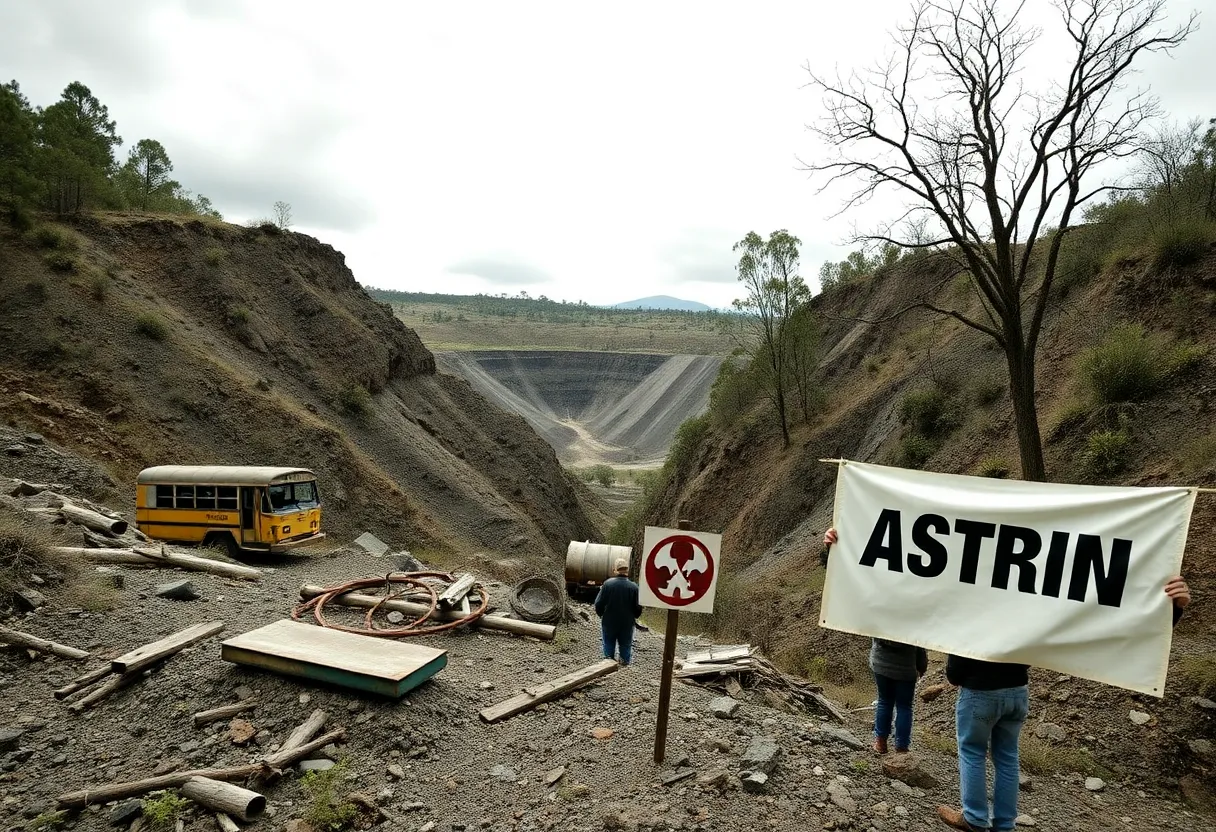News Summary
A new book titled ‘In a Rain of Dust’ by David Kinley exposes the troubling history of asbestos mining, detailing its devastating health impacts and ongoing legal battles. The book sheds light on the unethical practices of corporations, the plight of affected communities, and the struggle for justice against corporate negligence. As the legal landscape evolves, the implications of these historical injustices remain relevant, prompting critical reflection on corporate accountability and public safety.
Unveiling the Dark Legacy of Asbestos: A New Book Exposes Decades of Deceit
A gripping new book titled In a Rain of Dust: Death, Deceit and the Lawyer who Busted Big Asbestos by David Kinley has taken the literary world by storm, shining a harsh light on the malignant history and ongoing implications of asbestos mining. Priced at £22.50 and published by John Hopkins University Press, this compelling narrative has received a rating of four out of five stars (★★★★✩), signifying its relevance and depth in addressing a chilling subject matter.
The Asbestos Crisis: A Tale of Cruelty
The book profoundly discusses the cruel nature of asbestos, an insidious mineral linked to devastating health outcomes, drawing controversial parallels to the cruel political doctrine of apartheid. The mining of crocidolite asbestos during this era not only decimated the miners’ health but also inflicted suffering on their families and neighboring communities. As a byproduct of political injustice, the health implications were disproportionately divided along racial lines, leaving the ‘Bantu’ category with scant healthcare and protective measures.
Historical Context: Ignored Risks
Since as early as 1898, the health risks associated with asbestos were recognized, but it wasn’t until 1931 that the first significant legislative action occurred in Britain. While the dangers were being acknowledged in various forums, producers of asbestos, including the UK-owned Cape plc, blatantly ignored medical evidence and continued to profit at the expense of workers’ lives.
A Historic Legal Battle
Central to Kinley’s narrative is the landmark legal battle led by lawyer Richard Meeran from Leigh Day, which spanned nine grueling years and culminated in the English courts. This case, which saw its historic hearing in the House of Lords a quarter-century ago, resonates strongly today as discussions surrounding forum non conveniens and multinational company accountability become increasingly pertinent. The funding for this litigation was made possible through legal aid, a resource that is sorely lacking for similar claims in the current climate.
The Ethical Dilemma of Legal Representation
As mirrored in the book, the legal landscape comes with its ethical minefields, particularly in weighing the interests of clients against corporate machinations. Notably, the presence of anti-apartheid campaigner Sir Sydney Kentridge QC representing Cape in the Court of Appeal highlights the significant intersections between law, ethics, and social justice.
Current Litigations: South Carolina’s Asbestos Court Scrutinized
In a contemporary reflection of the issues detailed in Kinley’s narrative, the South Carolina asbestos court, presided over by former Supreme Court Justice Jean Toal, has faced an influx of scrutiny. Some allege that Toal’s perceived leniency has drawn out-of-state plaintiffs seeking potentially favorable settlements from major companies, including Johnson & Johnson and Anglo American plc. This situation raises vital questions regarding the extraterritoriality of South Carolina law and the responsibilities of corporations that operate on a global scale yet are subject to local legal proceedings.
Corporate Accountability and Future Implications
The legal landscape remains fraught with challenges as many companies involved in the litigation face bankruptcy, hindering recovery efforts through court-appointed receiverships. The scheduled bench trial in February 2025 indicates that the wrestling match between business interests and the quest for justice is far from over. Amid heightened tension, some of Toal’s decisions have been upheld in appeals, further intensifying the discourse around corporate responsibility, judicial integrity, and public health safety.
Conclusion: A Reflection on Responsibility
David Kinley’s In a Rain of Dust compels a reflection on the systemic tensions within the judicial process regarding accountability for historical corporate actions. As the ongoing legal battles demonstrate, the impact of exposure to asbestos-related materials looms large over communities, prompting essential questions about the balance of justice and the societal obligation to safeguard health and transparency. While the ghosts of the past haunt the present, Kinley’s work underscores the importance of ongoing vigilance against corporate negligence and the relentless pursuit of justice for those wronged by wrongful actions.
Deeper Dive: News & Info About This Topic
HERE Resources
The Controversial Asbestos Trial Resumes in Bloemfontein
Libby, Montana: A Community’s Health Care Lifeline Falls Silent
BREAKING: Libby’s Card Clinic Closes Amidst Legal Turmoil
Asbestos Health Clinic Faces Shutdown Amid Legal Turmoil
Legal Turmoil Surrounding Johnson & Johnson’s Talcum Powder: The Ongoing Asbestos Crisis
Mesothelioma Insights from 2025 Survey Reveal Hope Within Challenges
Family Seeks Answers After Asbestos Exposure Death
Controversial Asbestos Roof Removal Trial Resumes in Bloemfontein
Free State Asbestos Roof Removal Case: Properties Worth R32 Million Targeted
Explosive Developments in the Free State Asbestos Corruption Scandal
Additional Resources
- Texas Lawyer: Asbestos Litigators Sue De Beers Empire
- Wikipedia: Asbestos
- Post and Courier: South Carolina Asbestos Mining Lawsuit
- Google Search: Asbestos Law
- Outer Temple Chambers: Asbestos and Product Liability Litigation
- Google Scholar: Asbestos Litigation
- MSN: The Dust Under the Carpet
- Encyclopedia Britannica: Asbestos



















